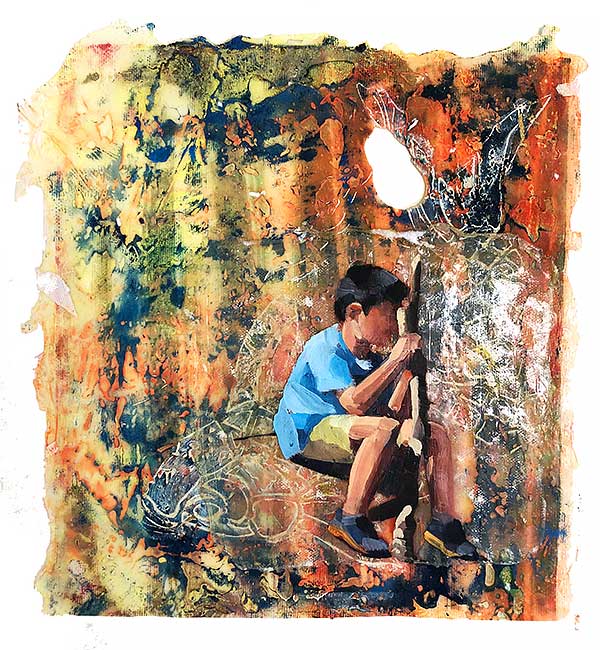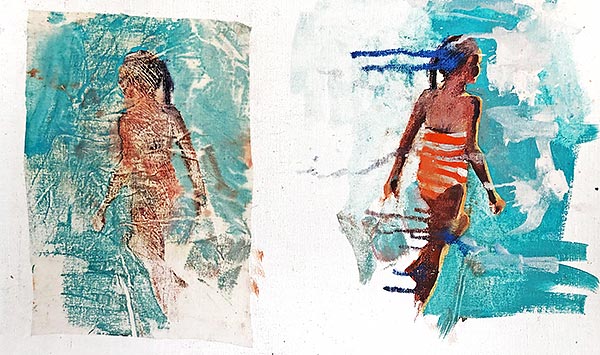Subtotal: $
Checkout-

Poem: “The Revenant”
-

Poem: “L’esthétique de la Ville”
-

Poem: “When You Pursue Me, World”
-

Gazapillo
-

Editors’ Picks: God Loves the Autistic Mind
-

Editors’ Picks: Damnation Spring
-

Editors’ Picks: Life between the Tides
-

The Faces of Our Sons
-

Remembering Tom Cornell
-

Letters from Readers
-

Monica of Thagaste, Mother of Augustine
-

Covering the Cover: Generations
-

A Legacy of Survival
-

Daughter of Forgottonia
-

Giving Your Children Your Words
-

Book Tour: On Being a Good Ancestor
-

Ten Theses on Intergenerational Stewardship
-

Inheriting Mental Illness
-

Yearning for Roots
-

Fear of a Human Planet
-

Reviving the Village
-

Is There a Right to Have Children?
-

The Stranger in My House
-

The Sins of the Fathers
-

My Father Left Me Paperclip
-

Decoding the Bible’s Begats
-

The Name of My Forty-Sixth-Great-Grandfather
-

Somewhere in Chessington
-

Singing the Law
-

Desiring Silence
-

Uncle Albert
-

Soldier of Peace

Two Crônicas
A Ukrainian-born Brazilian storyteller remembers her son and her father in a pair of evocative sketches.
By Clarice Lispector
December 8, 2022
The novelist Clarice Lispector (1920–1977) was famous for her crônicas – very short narratives written for the Saturday edition of Rio de Janeiro’s Jornal do Brasil newspaper. These two have been newly translated by Margaret Jull Costa and Robin Patterson.
Memory of a Small Son
September 28, 1968. What to feel about a son? When, in a way, I don’t have a single recognizable feeling. What to feel? I see his sunburned face, a face entirely unaware of the expression it’s wearing, entirely focused – like some lovely, delicate, fierce creature – on licking an ice cream.
It’s chocolate ice cream. My son is licking it. Sometimes this process becomes too slow for his pleasure, and then he takes a bite and makes a face that, again, is entirely unaware of the painful bliss of that frozen fragment filling his hot mouth. It’s a very lovely mouth. I look hard at my son, but he’s used to my soppy, love-filled gaze. He doesn’t look at me, and doesn’t mind being observed in this intimate act, which is both vital and delicate: and he continues to lick his ice cream with his probing red tongue. I don’t feel anything, except that I am all of a piece, hewn out of some heavy, fine material, wood of the finest quality. As a mother, I lack finesse. I am rough-hewn and silent. I look with my crude silence, with my empty gaze, at that equally crude face, my son’s. I don’t feel anything because this is what heavy, indivisible love must be. There I am, in retreat. In retreat from so much feeling. The impenetrable leaves me with a kind of harsh obstinacy; unfathomable is my middle name; here I am, all dressed up by nature. My face must have a stubborn air, my eyes are those of a foreigner who cannot speak the local language. It resembles a kind of torpor. I am incommunicado. My heart is heavy, stubborn, inexpressive, closed off to all suggestions.

Bianca Berends, Beach Thoughts, oil paint and mixed media, 2020. All artwork used by permission.
I am here and I can see: the boy’s face has grown suddenly more intense – he must have found a more chocolaty bit of ice cream, picked up by his quick tongue. No one would call me skinny: I am fat, heavy, big, with calloused hands that have nothing to do with me but are a legacy from my ancestors. I am a suspicious person who has called for a truce with suspicion. My son is now eating the ice-cream cone. I am an immigrant who put down roots in a new land. My gaze is empty, harsh, keen. And what does it see? A son concentrating hard, eating.
Sea Bathing
January 25, 1969. My father believed that every year we should all take a sea water cure. And I was never so happy as when we went sea bathing in Olinda, Recife.
My father also believed that the healthiest time to go sea bathing was before sunrise. Leaving the house while it was still dark and catching the empty tram that would carry us to Olinda felt to me like the most amazing of gifts.
I would go to sleep the night before, but my heart remained alert, expectant. And out of sheer excitement, I would wake up just after four in the morning and rouse the rest of the family too. We would pull on our clothes and leave before breakfast. Because my father believed that this was how it should be: no breakfast.
We went out into the dark street, feeling the predawn breeze. And we would wait for the tram. Until, far off in the distance, we would hear the sound of it approaching. I sat perched on the edge of my seat: my happiness was just beginning. Crossing the dark city gave me something I would never have again. Even while we were on the tram, the weather would begin to brighten, and a tremulous light from the still-hidden sun would bathe us and the world.
I looked at everything: the few people in the street, the journey through the countryside with all the animals already up and awake: “Look, a real pig!” I shouted once, and that cry of astonishment became a family joke, and now and then one of them would turn to me and say, laughing: “Look, a real pig!”
We would pass beautiful horses standing waiting for the dawn.

Bianca Berends, Sundown Beach Girl, oil paint and mixed media, 2020.
I don’t know what other people’s childhoods were like. But that daily trip turned me into a child filled with joy. And it served me as a promise of future happiness. It revealed my capacity for being happy. In an otherwise very unhappy childhood, I clung to the enchanted island of that daily journey.
The day was already beginning even while we were on the tram. My heart beat faster as we approached Olinda. At last, we jumped off and walked to the beach huts across ground that was already a blend of sand and vegetation. We got changed in the huts. And never did a body bloom like mine when I emerged, knowing what awaited me.
The sea at Olinda is very dangerous. You could take just a few steps over the flat bottom, and then plunge down about six feet.
Other people also believed in sea bathing before the sun was up. There was a lifeguard who, for almost no payment, would lead the ladies into the sea: he would spread his arms wide, so that the ladies would have something to hang on to as they did battle with the powerful waves.
The smell of the sea filled me, intoxicated me. Seaweed bobbed on the surface. Oh, I know I can’t convey how, for me, those pre-breakfast swims, with the sun still pale on the horizon, were just pure life. I’m almost too moved even to write about them. The sea at Olinda was briny and salty. And I did what I would always do in the future: I put my hands together and plunged into the waves, swallowing a little water as I did: I so wanted to be a part of the sea that I drank from it every day.
We didn’t stay long. The sun had already risen, and my father had to go to work early. We got dressed again, our clothes stiff with salt. My salty hair stuck to my head.
Then we would wait in the wind for the tram back to Recife. In the tram, the breeze would leave my hair crisp with salt. I would sometimes lick my arm thick with salt and iodine.
We would only have breakfast when we got home. And just the idea that the following day the sea would be there for me again, made me grow quite serious at the prospect of such venturesome adventures.
My father believed you shouldn’t take a shower immediately after sea bathing: the sea should remain on your skin for a few hours. I would reluctantly take a shower later on, leaving myself clean and sealess.
Who should I ask for a repeat of that happiness? How can I feel again the fresh innocence of the red sun rising?
Never again?
Never again.
Never.
“Memory of a Small Son” and “Sea Bathing.” By Clarice Lispector, translated by Margaret Jull Costa & Robin Patterson, from Too Much of Life, copyright © Paulo Gurgel Valente, 2022. Copyright © Todas as Crônicas, 2018. Translation copyright © 2022 by Margaret Jull Costa & Robin Patterson. Reprinted by permission of New Directions Publishing Corp.
Already a subscriber? Sign in
Try 3 months of unlimited access. Start your FREE TRIAL today. Cancel anytime.











































jacqueline
The story of the son touched y heart so deeply. I offer my suffering over estrangement with my 30 year old son and his beautiful family as prayer for Ukraine mothers. I have no idea why this is happening - I did my best as a mother - in a committed life to my whole family.... I think the woman in the story still has her son but the imagery and phrases ring of loss to me...I am deeply moved by this magnificent poem. thank you